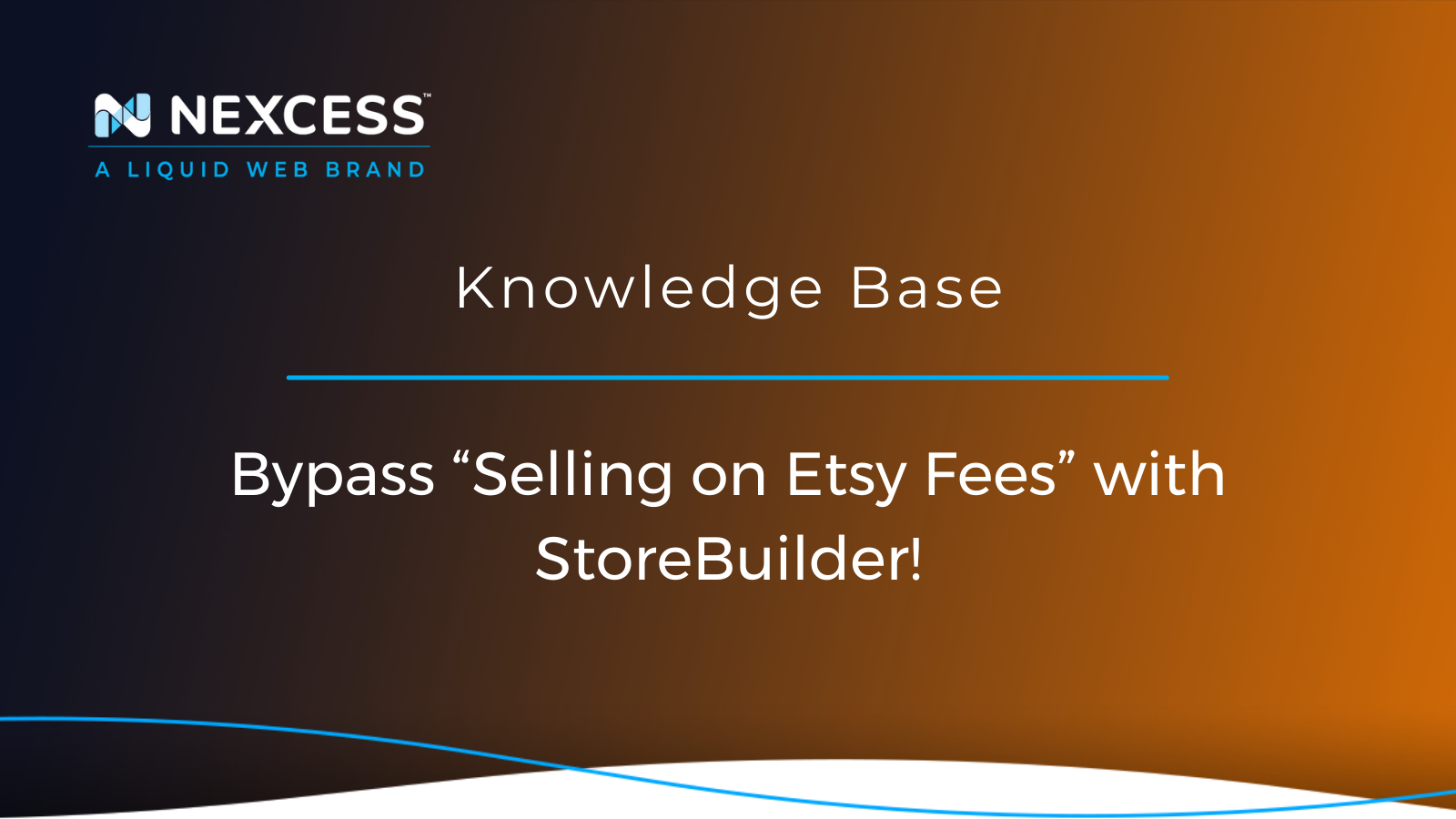Is Etsy the right choice for you? Etsy takes a percentage of your profits with their fee structure. And when you're selling on Etsy, fees add up.
Keep reading to learn more about Etsy fees and how you can avoid them with other ecommerce alternatives.
What Percentage Does Etsy Take in 2022?
Etsy Transaction Fee:
- Before April 11, 2022: 5% of each transaction
- As of April 11, 2022: 6.5% of each transaction
Etsy Payment Processing Fee:
- 3% + $0.25 for each purchase
Etsy Listing Fee:
- $0.20 per item to be listed for 4 months
Etsy Fees & Payments Policy
For a complete list of fees, see the following document provided by Etsy:
Etsy Fees & Payments Policy (Effective from April 11, 2022)
The Move to Online Stores is Here to Stay
Over the last few years, we have seen significant changes happening in the world of commerce. With the threat of global pandemic, millions of people working in the retail industry have lost their jobs, countless stores have shut their doors, and the whole situation has significantly affected small and middle-sized businesses. Moving these businesses online or expanding their online operations has been a lifeline for many people who loved what they did and decided to stay in the industry.
It’s also been a period where people sat down and took a hard look at their lives. Plenty of people have decided that life’s way too short for a standard nine-to-five job in a cubicle (or something similar) and have decided to pursue their passions.
Whether you’re a crafter, an artist, or just a reseller of any goods, you must have discovered how important it is to have a fully functioning webshop with a sound support system. As an owner of a small or middle-sized business, you might think the best practice would be to go with a well-oiled machine, such as an established online marketplace that will allow you to sell your products there. Sometimes, that might be the case, but more often than not, it might bring more harm than good to your business.
About Those "Selling on Etsy Fees"
If you have researched the subject of ecommerce transaction fees, you probably discovered countless websites offering to sell your products for a “small fee.” They’ll usually “do all the work,” and you’ll need to post your products. But is that really the case? Well, usually not. Sure, there are websites like Etsy, Amazon, eBay, Facebook, or Instagram marketplaces. Even Google and Walmart have their marketplaces that all offer similar services for a specific price.
However, depending on their systems, they’ll either have a limit of products you can list or a limited number of products you can sell in a period of time. Maybe they’ll have some additional limitations, as well, since you will be advertising on their terrain, using their websites, resources and everything else.
Since you are effectively using someone else’s resources to sell your products, additional fees for this type of service are to be expected. Some of them will be prepaid, in the form of a fixed “plan” for your “store,” while others will depend on sales made through these marketplaces.
For example, selling on Etsy will incur additional fees. Currently, there are transaction fees, payment processing fees, listing fees, promotional and advertising fees, as well as in-person selling fees. And these are all on the “free plan.”
Some of the fees assessed will be fixed and charged per product, while others will be a certain percentage of the price you defined per product. These can amount to a high 20-30% of your own product’s price when you add them all up. Of course, if you’re providing low-cost items, these costs will be even higher.
Rest assured, Etsy is not the only marketplace with additional fees. There are plenty of others that might charge a certain percentage depending on the product category, like Walmart Marketplace, or that will have different ecommerce plans, like Square Online.
However, there are also some Etsy alternatives one might consider
Increased Etsy Transaction Fees
Etsy recently announced a raise in their transaction fees from current the 5 percent to 6.5 percent. The last time these fees were raised was in 2018 when they were raised to the current 5 percent from an initial 3.5 percent. These changes are, as expected, upsetting to merchants on that platform, as we live in difficult times, with inflation threatening to worsen. These attitudes of disdain are understandable since Etsy announced a record-breaking fourth quarter of 2021 with revenue of $717.1 million.
Etsy does have an extensive base of buyers, but it also has a vast base of merchants. If you’re selling products similar to others already offered, it’s easy to get lost in the mass of people there. To stand out, you’ll still most likely need to do extensive research into SEO and advertising and that, combined with all the additional fees, brings out the main question: Is Etsy the right choice for you? Selling on Etsy will incur expenses that you might not be willing to pay while not giving you the visibility you’d have if you had your own little corner of the Internet.
Consider StoreBuilder Nexcess to Bypass “Selling on Etsy Fees”
As previously mentioned, other Etsy alternatives do not bring additional fees that selling on Etsy does, especially when it comes to ecommerce platforms that allow you to build your website. Both Magento and WooCommerce can get complicated, as they do require quite a bit of programming experience or even a whole development team by your side to create a properly functioning store.
StoreBuilder by Nexcess allows you to create an ecommerce store with no coding required. It is based on WordPress and WooCommerce, the most potent dynamic duo in the industry, but they’re bundled for fast and easy deployment.
There aren’t any additional fees associated with it; there aren’t any limitations to the number of products you can list in it. There aren’t really any limits to customizations you can make to it, yet all without writing a single line of code. The only thing you’ll need to do is pick the best domain name for your business, kick off the StoreBuilder Wizard, and watch the magic happen.
Let’s not forget, StoreBuilder is backed by a variety of WordPress plugins created exclusively to make your life easier. Our heroic support team has also got your back 24/7, should you bump into any technical issues.
Get Started With StoreBuilder
Want to get online quickly using a user-friendly store creation wizard? Consider StoreBuilder by Nexcess.



